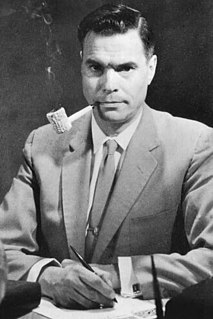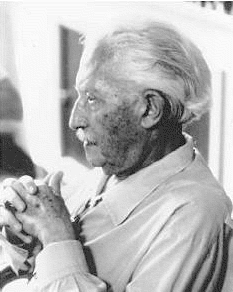A Quote by William Hazlitt
I like a person who knows his own mind and sticks to it; who sees at once what, in given circumstances, is to be done, and does it.
Related Quotes
I like a person who knows his own mind and sticks to it; who sees at once what is to be done in given circumstances and does it. He does not beat about the bush for difficulties or excuses, but goes the shortest and most effectual way to work to attain his own ends, or to accomplish a useful object.
A man who knows a thing, recognizes a given danger, and sees with his own eyes the possibility of a remedy, damned well has the duty and the obligation not to work 'silently', but to stand up openly against the evil and for its cure. If he does not do so then he is a faithless, miserable weakling who fails either from cowardice or from laziness and incompetence....Every last agitator who possesses the courage to defend his opinions with manly forth-rightness, standing on a tavern table among his adversaries, accomplishes more than a thousand of these lying, treacherous sneaks.
The power of magic has no known limits. A person knows, in a fair way, his own physical capacities, the weight of the blows he can deal, the furthest range of his arrows, the strength of his voice, the speed and endurance of his running; but the reaches of his mind are indefinite and, to his feeling, infinite.
The Negro who experiences bitter and agonizing circumstances as a result of some ungodly white person is tempted to look upon all white persons as evil, if he fails to look beyond his circumstances. But the minute he looks beyond his circumstances and sees the whole of the situation, he discovers that some of the most implacable and vehement advocates of racial equality are consecrated white persons.
When the father dies, he writes, the son becomes his own father and his own son. He looks at is son and sees himself in the face of the boy. He imagines what the boy sees when he looks at him and finds himself becoming his own father. Inexplicably, he is moved by this. It is not just the sight of the boy that moves him, not even the thought of standing inside his father, but what he sees in the boy of his own vanished past. It is a nostalgia for his own life that he feels, perhaps, a memory of his own boyhood as a son to his father.



































